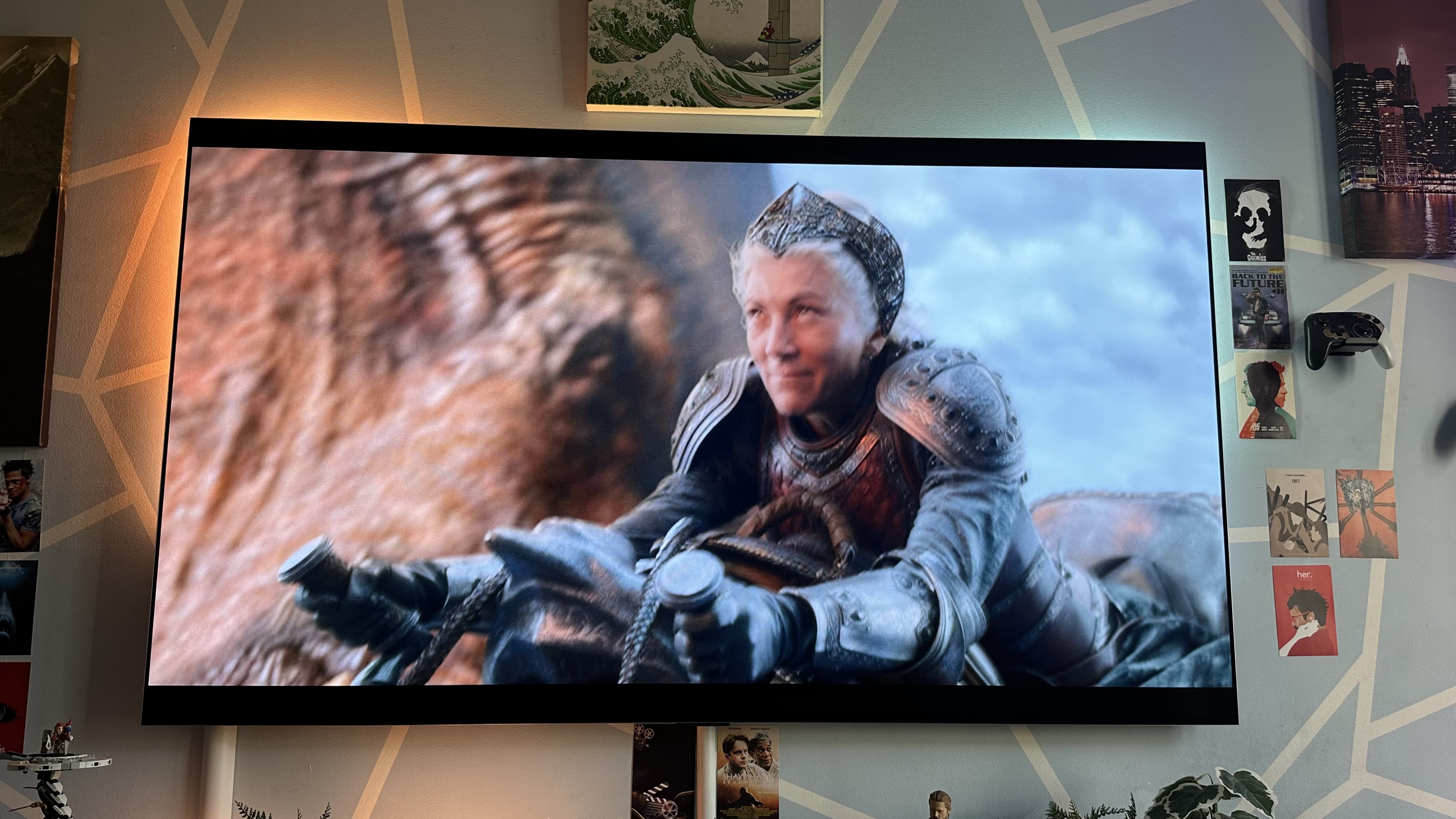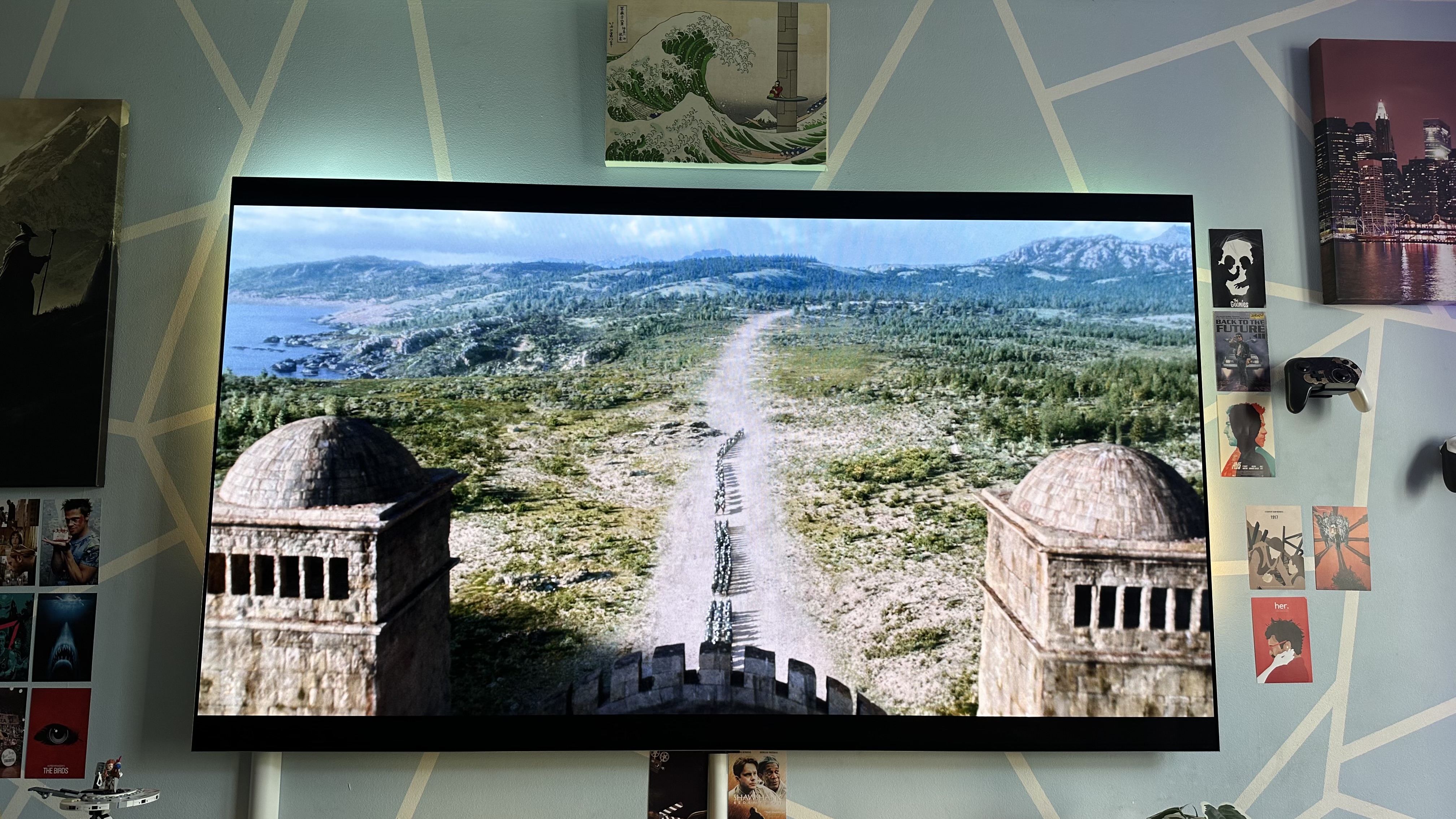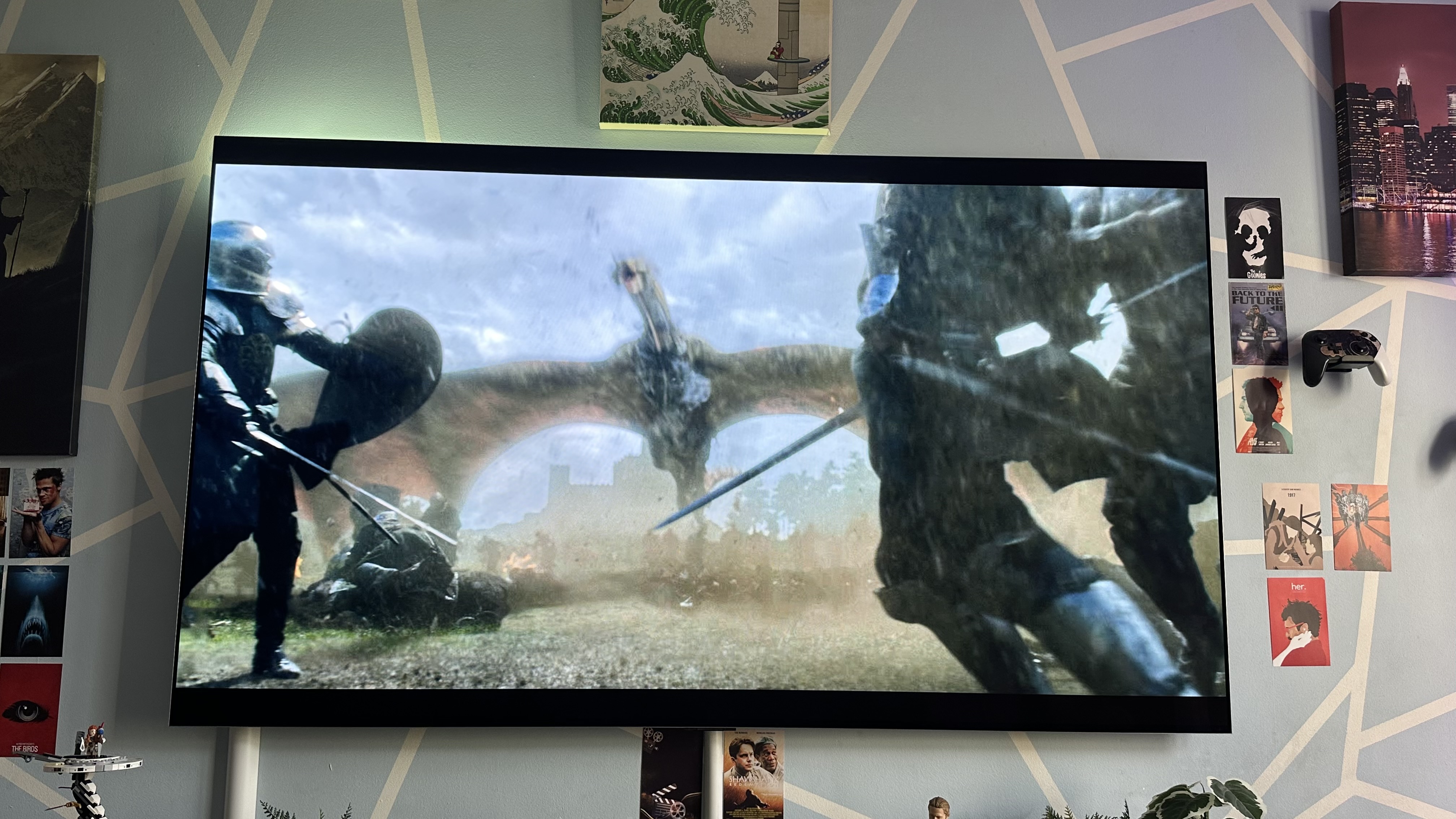
First off, let me make something crystal clear: I like “House of the Dragon”. I definitely have less affection for it than I do for “Game of Thrones” — then again, George R.R. Martin’s fantasy epic is my favorite show of all time — but I don’t take much pleasure in the fact I’m about to dunk on it. Or, to be more specific, throw shade at its digital effects.
Trouble is, I’m a bit of a snob when it comes to CGI, so I can’t help myself. “Jurassic Park” means more to me than I’ll ever be able to fully convey in words. The fact the most influential effects movie of all time (perhaps tied with the original “King Kong” from 1933) still has better CGI than most movies and TV shows 31 years after Steven Spielberg wowed the world with that Brachiosaurus shot bothers me a lot.
To be clear, I’m not watching HBO’s latest piece of appointment TV on a subpar LCD screen at 720p.
Circling back to “House of the Dragon”, I’m becoming increasingly frustrated with the inconsistent quality of the effects work being churned out by Global VFX Studio MPC. Initially, I thought this was down to budget constraints (even questionable CGI isn’t cheap to generate). Yet according to The Media C-Suite, “House of the Dragon” is the 7th most expensive show ever to be produced, while its predecessor ranks at number 8.
If the site’s reporting is accurate, an average episode of “HotD” costs $20m to produce, while “Thrones” cost a “mere” $15.4 million per episode before it wrapped in 2019. I can only assume the prequel’s substantially larger budget is because right from the first episode, the producers have been paying actors who are simply better known than their "GoT" counterparts were when David Benioff and D.B. Weiss’ HBO epic first aired back in 2011.
After all, Sean Bean was the only real household name when “Game of Thrones” hit our TV screens as Ned Stark. By contrast, its prequel series had to fork out for the likes of Paddy Considine (please, please seek out “Dead Man’s Shoes” if you haven’t watched his gritty and amazing 2004 British thriller), Rhys Ifans and former “Doctor Who” star Matt Smith.
Enter the dragon

However the money is being allocated in the making of the show’s production, there are so many shots in “House of the Dragon” that don’t pass my obsessive eyeball test. And weirdly, the titular leathery lizards normally aren’t the problem.
Aemond Targaryen (damn can that dude pull off an eye patch) is blessed with the biggest and baddest dragon in the show. Almost every time the colossal Vhagar has appeared on-screen I’ve been impressed by the small details that have gone into the Titanic-sized dragon’s design — like the multiple tears in its colossal wings that clearly show off the beast’s age.
That said, I still think a fully grown Drogon (the real MVP from “Game of Thrones”) would incinerate Aemond’s mighty mount in a full-on fight.
The real issue for me is that “House of the Dragon” appears to have engaged less real-world location shooting than “Game of Thrones." This results in a ton of straightforward shots between characters involved in a scheming chat where you can clearly make out the background scenery — be it even the simple brick walls of a castle — relies on heavy amounts of green screen.
Blurring the lines

The other big problem for me is just how blurry a lot of the show’s big action scenes look in motion. Now, I realize if you’re looking at the images in this article, you may be thinking the CG in “House of the Dragon” looks decent enough. All I can tell you is that when I took these shots on my iPhone 14 Pro, they ended up looking a ton better than when I was watching the show in person.
To be clear, I’m not watching HBO’s latest piece of appointment TV on a subpar LCD screen at 720p. The photos you’re looking at (and again I appreciate it might be tough to make out the quality of the effects work if you’re reading this on a phone), are of the show on an LG G3 OLED on a U.K. Sky Stream box at 4K resolution, which averages a video bitrate between 8,000-14,000kps.
And make no mistake, Sky Stream normally produces glorious Ultra HD pictures through my 1GB fiber optic connection; to the point where the quality is so good, watching movies on the little puck-shaped streaming device is up there with the best-looking 4K Blu-ray movies.
“House of the Dragon” and its inconsistent CG work isn’t helped by the fact that in my opinion, the final three seasons of “Game of Thrones” produced the best computer-generated imagery in the history of TV. Yes, yes, there’s that tiresome argument that “The Long Night” is darker to look at than peering into a black hole, but the odd questionable lighting decisions aside, I genuinely think the quality of the effects (which were made by FX house Pixomondo) in those final seasons are mostly immaculate.
Don’t get me wrong, I’m absolutely going to keep watching “House of the Dragon”, as I think the quality of the writing and acting are largely top-notch. I just hope the blockbuster show can up the quality of its inconsistent CGI when season 3 rolls out.


.png?w=600)




